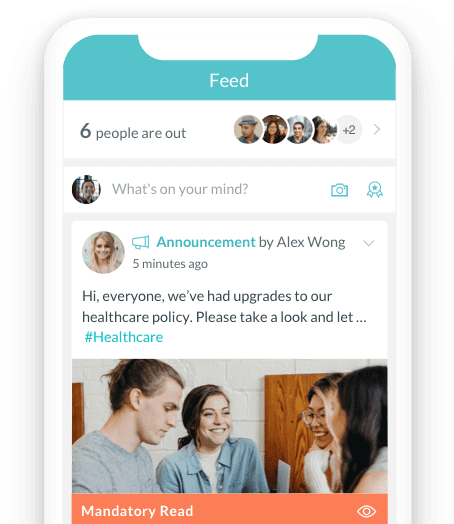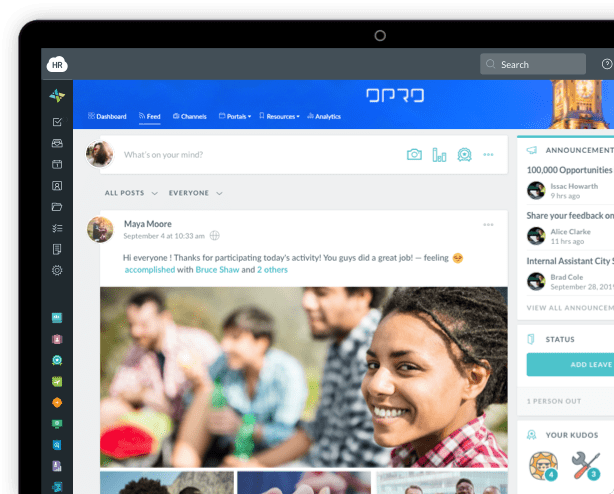In the contemporary business landscape, it is positively crucial that companies stay ahead of the curve and remain competitive, no matter what. There are, of course, many ways to achieve this admittedly lofty goal, but the good news is that optimization comes in many forms, and Human Resources (HR) management systems are often a point of contention that ought to be considered.
Quite simply, HR software needs to be fully up-to-date much like virtually any other piece of software. The failure to quickly and efficiently complete HR tasks, however, can lead to major hang-ups in other areas of business. Performance management is, after all, a crucial element of optimal operation, and the importance of employee management cannot be overstated. A human resources management system, then, needs to be able to meet the needs of your organization at any given moment.
Furthermore, outdated HR software can lead to a number of issues. Reduced efficiency, increased costs, and a lack of compliance with industry regulations, just to list a few. To say nothing of the fact that newer HR software versions implement comprehensive security approaches, such as the Essential 8, which may prove instrumental in keeping your data safe and sound.
By investing in keeping their HR software up-to-date, companies can ensure that the appropriate HR processes are streamlined, data is secure, and that their employees are properly supported. In this article, we will explore the various benefits of updating HR software and why companies may need to prioritize this important task.
What is a Human Resources Management System?
"HR software" is a term used to refer to a wide variety of employee management features, including - but not limited to - payroll software, employee records, performance management, workflow creation, and onboarding features. In effect, the term refers to all those backend systems that help the HR department do its job, and considering the fact that HR teams often need to work with confidential employee data, their importance should prove self-explanatory.
The specifics of your particular HR software solution will greatly depend on the exact niche you're working in and what your HR professionals have gotten used to. In some instances, your company's HR tools may well have been purpose-built or at least substantially customized by a vendor. Should this be the case, then it's possible that the mere act of updating your HR solution may cost a non-insignificant amount of money.

By opting not to pursue software updates, your HR teams may end up missing features that are present in a more up-to-date variant of the application, and which may be instrumental for the company's continued internal operations. At that point, it's easy to see that the time is right to consider paying for a version update.
What Are The Reasons to Update HR Software?
Source: Unsplash
The specifics of why an HR department may want or need a fully updated set of HR tools will differ between HR departments in many ways. Here, however, we've summarized four important aspects of everyday HR tasks and operations. A sleek and speedy implementation of HR software bolsters all of them, making your enterprise that much more efficient in practice.
#1: System Integration (with Payroll Software and Beyond)
HR teams often posit themselves as a sort of bridge between different company departments, handling employee data for optimum employee performance management no matter the function or position. A budding HR system, then, needs to be able to integrate existing data from different systems to allow for easy and simple communication.
This is where the need for a single, centralized HR platform comes in. Human capital management has, historically, been a major hurdle due to its complexity and obtuseness. Keeping employee data centralized within the confines of a single, yet flexible and adaptive HR system allows for easier and simpler HR operations virtually across the board. This is where HR Cloud can help you, offering a solution for every HR needs. This has a direct and profound effect on the actual employee experience you ensure for your team.
Integration has been a massively important aspect of the latest developments in HR software. Software vendors want their HR systems to be the go-to solution for as many companies as possible, which means that their HR platform needs to be as adaptive as it is reliable, custom additions notwithstanding.
Updating your HR software is bound to improve its integration capabilities, though it's worth pointing out that you may wish to reach out to your software vendor with information about the rest of your technological backend. They will help you figure out if the newer updates come with custom integrations you need by default.
#2: Administration Optimization
Since one of the main draws of good HR software is a comprehensive employee experience management system, it goes without saying that newer iterations and updates can massively improve these features.
Administration optimization in corporations is an important part of ensuring that the organization is running efficiently and effectively. Attempting to optimize involves streamlining processes, reducing manual labor, and improving accuracy. It also involves ensuring that the organization is compliant with industry regulations and that data is secure.
Additionally, administration optimization can also help reduce the costs associated with manual processes and outdated systems. By optimizing their administration processes, corporations can ensure that their employees are supported and that their operations are running smoothly. Administration optimization can also help improve customer service, increase productivity, and reduce overhead costs - all immensely valuable aspects of business that are well worth pursuing.
Administration optimization is an essential part of running a successful business and should be a priority for any organization, and getting HR processes in order is an easy way of improving on this front.

#3: Employee Engagement and Support
It may sound obviously obtuse at face value, but investing in payroll software solutions is a remarkably good way of improving long-term employee engagement. Most companies find themselves ignoring this particular aspect of employee engagement in lieu of fancier and flashier benefits, but it's a simple statement of fact that people love getting paid: on time and without fuss. True enough, there are a number of employee rewards that employers can leverage to improve employee performance, but HR and payroll still ought to be prioritized.
Keeping the above in mind, it's worth mentioning that good HR software helps establish the proper HR processes and channels to reward employee performance quickly and easily. This keeps your company flexible and reactive, all the while making payroll management a breeze.
One of the key ways for modern companies to optimize their employee lifecycle and ensure employee appreciation is to keep their HR software easy to handle. As obvious as this may seem on paper, older versions of HR software don't have all the modern amenities and quality-of-life features that cutting-edge stuff comes with. This improvement in HR processes is, therefore, a key consideration when deciding whether to update a given HR system or not.
Broadly speaking, streamlining is almost always a good idea - especially when it comes to HR processes.
#4: Regulatory Compliance
The final consideration on this topic is also, for some people, the least interesting one: regulatory compliance. Yet, regulatory compliance is positively crucial across the board - not only due to the specifics of keeping employee records and assorted legal considerations but also because regulations dictate data security and beyond.
Now, up-to-date HR software will help with regulatory compliance by ensuring your organization ticks all the latest laws and regulations - an obvious and immediately beneficial boon all on its own. Avoiding fines and non-compliance penalties is a must, after all.
There are, however, two aspects of a company's regulatory compliance. The first is made up of its features, software, systems, and their respective implementations. The second, however, are the employees themselves. A comprehensive HR system will assist in discovering whether everyone involved is aware of and adheres to all the relevant regulations, which in turn helps maintain compliance and improve employee experience should anything go awry with the government.
HR Professionals Need Updated Software to Be Efficient: Do Your Part Today
Source: Unsplash
In conclusion, updating HR software can be a great way to streamline HR processes, ensure regulatory compliance, and improve employee engagement, all while providing a secure environment for crucial employee data. In order to do so, however, company CEOs need to take the time to consider how their HR functions and if new software is, perhaps, the way to move forward.
Human resources management systems have been gaining traction in recent years, and it is essential that companies stay ahead of the curve and remain competitive by investing in up-to-date HR solutions. By staying up-to-date, companies can ensure that their processes are streamlined, data is secure, and that their employees are properly supported. These immensely important aspects of conducting business often go unnoticed and ignored, and this ought not be the case in serious workforce management implementations.
The 40 Best Thank You
Messages for Colleagues
building a positive and engaged culture at your company.

Author Bio:
Paul is a cyber security expert specializing in PKI solutions and website security. He is often in front of his computer, trying to break into a website or API for clients and writing about it to improve the safety of others. He is a published author with his books on PKI Solutions and SSL/TLS Certificates, a Fire Fighter with his local brigade, and an avid snowboarder in the winter.
Keep Reading
Balancing Technology and the Human Touch in Employee Engagement
Companies are taking employee engagement very seriously because it is one of the ways of
Building Strong Teams: The Power of Team Bonding Exercises
Never overestimate the power of collaboration as a core element of effective team



